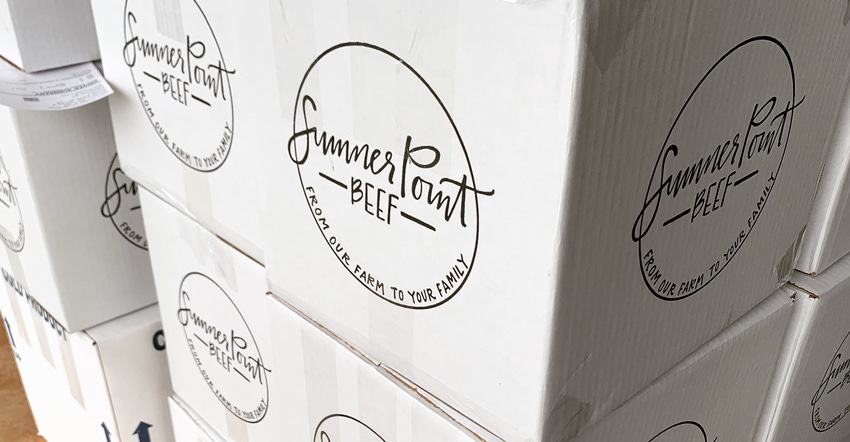
Amid packer shutdowns and supply chain interruptions, what’s the right meat business to be in during the COVID-19 pandemic?
A local one. The kind that lets a consumer order meat from their computer and receive small packages on their doorstep in days. Meat that comes from a family they trust.
That model has proved phenomenally successful for Sumner Point Beef, says Krystal Jungmann, who runs the business with her family and has seen sales double from mid-March to mid-April.
“Our push in business came when people walked in the grocery and couldn’t get ground beef,” Jungmann says. “That’s really when our business saw a significant increase.”
She’s quick to note that as a farmer, she knows there’s no supply problem; she’s literally staring at cattle in her pasture. But as a business model, her family’s business has the ability to get meat from pasture to processor to doorstep, within a few days of a customer’s order.
Jungmann and her brother Scott Campbell, along with their spouses, started Sumner Point Beef 18 months ago because they knew their cattle were worth more than they were getting at the sale barn. They’ve developed agreements with Reason Meats, a fourth-generation locker in nearby Buffalo Prairie, Ill., to regularly process cattle. Jungmann — now with the help of her kids, home from school — takes orders, packs, ships and delivers meat all over the country.
“To have the infrastructure and process in place has been wonderful for our farm and business,” she says.
More halves and quarters
Their sales increase has come primarily from new customers, many of whom heard about Sumner Point through word of mouth and social media. Before COVID-19, Jungmann says their sales were 75% urban and 25% local; in the past month, that’s switched to 50% urban and 50% local, with local business doubling.
Sumner Point sells a variety of packages, including hamburger and steaks, but Jungmann says most of their local growth has come from people buying quarters and halves.
While local sales have doubled, so have their shipped sales.
“Why? It’s online shopping. I can get 10 pounds of ground beef ordered to land on my door this week, and I know it will show up,” she says. “We’ve had no shipping issues, and it’s all been on time.”
Clearly, people are looking for ways to make their lives easier in quarantine, and to rely on a food supply they can trust. Enter Jungmann and her family, who promote their beef as a family-raised product, raising beef for “families just like ours.”
“We’re all doing things to make our lives better and easier right now,” she says. “Grocery pickups especially. If I can get meat dropped on my doorstep, I would sure take advantage of it.”
Managing inventory has been tricky, she allows, mostly because they’re trying to meet the needs of customers who want an assortment of steaks or ground beef, as well as customers who want an entire half. Two weeks ago, they delivered five head to the locker, and every pound was sold before they left home.
It’s the kind of assurance that helps a beef producer sleep at night, especially as she hears about other beef and pork producers struggling to find a buyer for animals that are market-ready.
“It’s a win for our type of business,” she allows. “But it’s heartbreaking for others.”
Editor’s note: Krystal Jungmann’s husband, Matt, is national events manager for Farm Progress.
Read more about:
Covid 19About the Author(s)
You May Also Like






